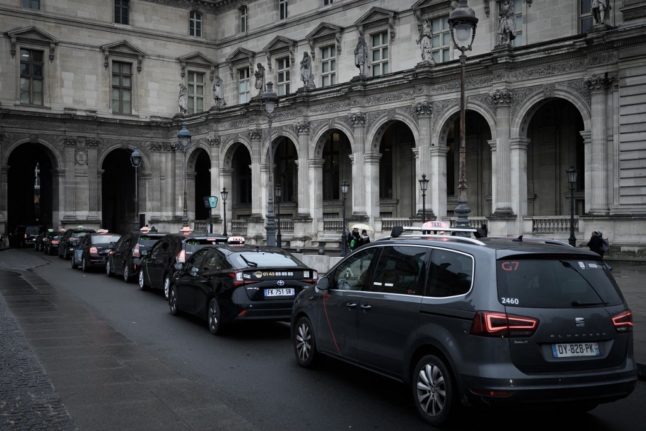Much has been made of the flying taxis that are set to take to the skies in Paris around the time of the 2024 Olympic Games – but a more important and meaningful addition to the public transport fleet in the capital is set to occur at street level.
In April, the French Parliament adopted a bill allowing the Paris Préfecture de Police to issue a total of 1,000 extra taxi licences for vehicles adapted for the use of people with reduced mobility in time for the Olympic and Paralympic Games in 2024.
Now, the préfecture has put out a call on social networks for applications for 652 of the – very particular – licences that are usually available only to holders of a professional taxi driver card issued by the police prefect.
📣 Taxis parisiens : #AppelÀProjet spécifique pour une offre pour les personnes à mobilité réduite (PMR) en vue des #JOP2024.
🚕 Création de 652 autorisations de stationnements expérimentales.
✅ L’appel à candidatures est ouvert jusqu’au 15 octobre ⤵️https://t.co/Gjlc5mk2yV pic.twitter.com/gBQElDZPfj
— Préfecture de Police (@prefpolice) September 12, 2023
Under this scheme, legal entities with suitable vehicles can apply for a taxi licence in the capital.
Historically, taxi licences in Paris – known as an Autorisation De Stationnement (ADS) de taxi Parisien – have been worth their weight in gold.
READ ALSO What you need to know about taking a taxi in Paris
Only a limited number are available, and they are very tightly controlled – to the extent that retiring taxi drivers have in the past been able to boost their pension pot significantly by selling-on their licences to the highest bidder.
Since October 2014, however, this practice has been outlawed. Today, an ADS is non-transferable, and has to be renewed every five years.
To register on the waiting list for a standard licence, use this form.
The strict controls on taxi licences historically meant that Paris taxis were hard to find, and the drivers notoriously unhelpful. This model was broken by the arrival of Uber in 2016 broke this monopoly and were followed by French TVC companies such as Heetch.
For the new licences, the driver must undertake on their honour to follow training according to standards set out by the Ministry of Transport. In addition, the ADS holder will keep a register making it possible to quantify journeys carrying wheelchair users – known as personnes à mobilité réduite (PMR).
This register will be made available to the services and subject to a reporting obligation. But the ADS will be valid for five years and renewable at the request of the beneficiary.
The scheme is a further attempt to improve accessibility for wheelchair users and people with specific needs in a city that does not have a great record on the topic.
In April 2023 the Council of Europe ruled that France had violated the rights of people with disabilities, namely with regard to housing, transport and healthcare. The country was strongly criticised for failing to ensure equal access to key services, including public transport.
READ ALSO ANALYSIS: How accessible is Paris for people with disabilities?



 Please whitelist us to continue reading.
Please whitelist us to continue reading.
Member comments